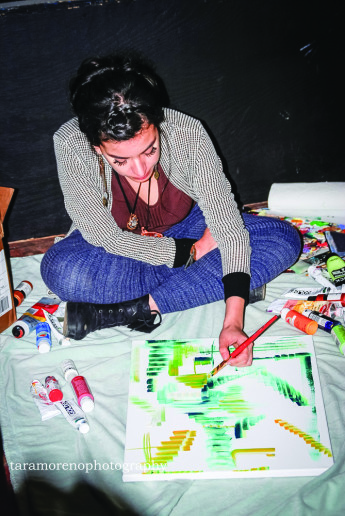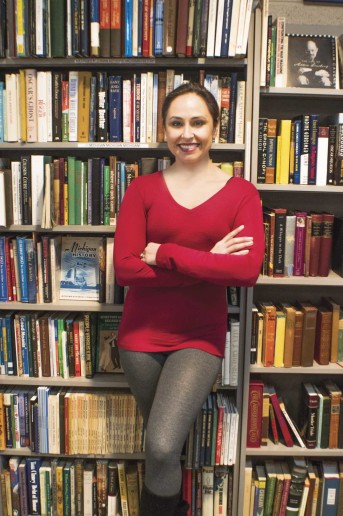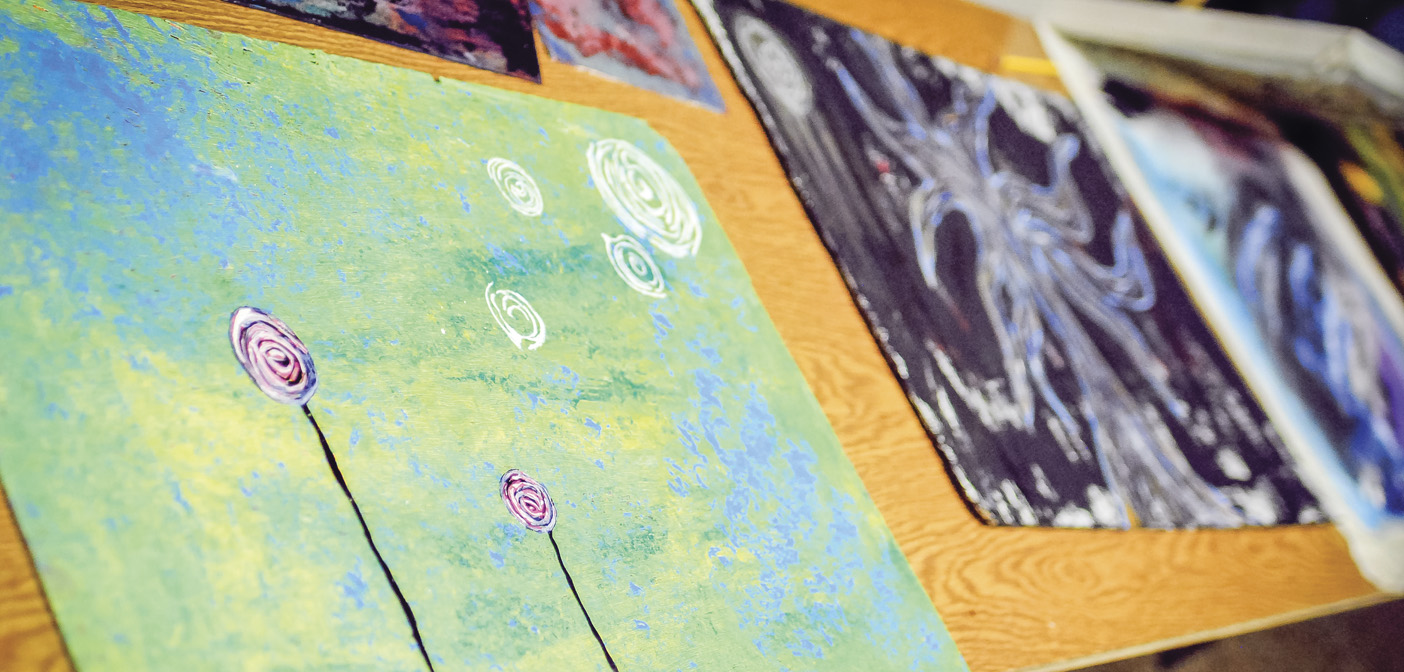 When Tara Moreno was working as a reporter for a local newspaper, she stumbled upon a holistic practitioner in Burton. Interviewing the practitioner for a story turned into a life-changing experience. At that point, Moreno was suffering with anxiety, depression, even occasional panic attacks, and says, “I had been to every doctor, psychiatrists and psychologists, and still could not find my baseline of wellness.” The holistic practitioner offered a new explanation to Moreno, telling her that she was not well because she needed spiritual medicine. But, Moreno was not convinced by that explanation. “My analytical mind was doubtful; I thought, ‘yeah right, there is no way.’ But, I was not well. I was suffering and willing to give it a try.”
When Tara Moreno was working as a reporter for a local newspaper, she stumbled upon a holistic practitioner in Burton. Interviewing the practitioner for a story turned into a life-changing experience. At that point, Moreno was suffering with anxiety, depression, even occasional panic attacks, and says, “I had been to every doctor, psychiatrists and psychologists, and still could not find my baseline of wellness.” The holistic practitioner offered a new explanation to Moreno, telling her that she was not well because she needed spiritual medicine. But, Moreno was not convinced by that explanation. “My analytical mind was doubtful; I thought, ‘yeah right, there is no way.’ But, I was not well. I was suffering and willing to give it a try.”
Moreno was also in long-term recovery from addiction. Although it had been almost ten years since she had gone through a 12-step program, she felt that something was missing from her recovery. According to Moreno, after all those years, she still couldn’t get to a place where she had achieved wellness.
The holistic practitioner agreed to see Moreno and they had their first session. She explains, “a typical session of energy medicine, or Rieke, takes about an hour. A person will lay on a massage table, fully clothed, and the practitioner will start at their crown (head) and either lay hands on, or hover, and work down to the feet, and some people will use music or stones and crystals from the earth to intensify the energy.” Moreno reports that after one session, she felt a difference. “After that session, I had a week of peace and bliss and clarity; it changed everything for me. I realized that this was the missing piece in my recovery.”
Rieke is a technique that has been implemented, along with traditional medicine, for quite some time, Moreno reports, “It has been used at Beaumont Hospital for 10 or 15 years; John Hopkins uses it, Henry Ford just implemented a program, the U.S. Army uses it in their Warrior Combat Stress Reset Program. This is something that is catching on, and Flint needs to catch on.” Moreno is on a mission to make that happen.
 “Serenity House came about because I was being led to bring something new to Flint that you really cannot find here, in a nonprofit,” Moreno explains. They have been a 501c3 for three years and host the Annual Flint Recovery Walk & Rally and the Annual Flint Recovery Arts & Music Show. “We do a lot of events, so we are kind of an outreach program, not only offering holistic services, but we also aim to reduce the stigma surrounding recovery.”
“Serenity House came about because I was being led to bring something new to Flint that you really cannot find here, in a nonprofit,” Moreno explains. They have been a 501c3 for three years and host the Annual Flint Recovery Walk & Rally and the Annual Flint Recovery Arts & Music Show. “We do a lot of events, so we are kind of an outreach program, not only offering holistic services, but we also aim to reduce the stigma surrounding recovery.”
“Most people don’t want to hear about addiction and recovery, they are afraid of addiction, they are afraid of recovery, because there is a stigma around it,” Moreno explains. “Those who have gone through addiction and recovery have walked some dark paths, and once they are past it, they don’t want to talk about it anymore. But, I think it is important to talk about it, because there are 23 million Americans right now in long-term recovery and an equal number still suffering with addiction. Another 175 per day die of overdoses in the U.S.” Moreno thinks that recovery needs to be normalized, rather than feared, and should include holistic practices such as yoga, Rieke, mindfulness meditation, acupuncture, and … the arts.
How do the arts factor into recovery? As Moreno explains, they seem to be rather interconnected, “Arts and music are natural ways to heal. When we are creating art or music, we tap into the universal forces and it is incredibly cathartic. On the other side of that, a lot of people who are in recovery are creative individuals.” Moreno continues, “We so often read about actors, artists and musicians dying of drug overdoses. When you feel deeply to create, it can also be very challenging. Because feeling that much passion leaves the person open to also feeling very difficult things. Those creative people often want to block out negative feelings because they are so intense, and they often turn to drugs or alcohol to do that.” What Serenity House offers, Moreno says, is, “through the celebration of art and music, we bring people together who are suffering from addiction or an emotional disorder, and give them a safe, sober space to express their gifts.” Additionally, Moreno reports that they plan to incorporate an art therapist into their services.

Photo By Jennifer Hodney
The Serenity House has been operating without a physical space, bringing the services on location to whoever requests them. But, the Serenity House will soon have a home of its own, through a donation from Craig Krueger. “The house is on Fifth Avenue, a big duplex next to Vogt’s Flowers, that we are going to renovate,” Moreno smiles. “I believe that once we have that physical location, and a safe space to eradicate the stigma, to not judge someone’s pathway – because, we embrace all pathways to recovery whether holistic, smart recovery (atheist/agnostic), spirituality, whatever pathway you use, we embrace that – you don’t see places like that, where there are options for people to explore in their own recovery. I know that we will make a huge impact.”
She emphasizes, “we need to keep our minds open in terms of our wellness. There are a lot of people in pain who don’t have answers. We work with Western medicine, to compliment it and provide a more comprehensive way toward wellness.”
The Serenity House of Flint has an outreach program, working with Crossover Downtown Outreach Ministry and Hurley Cancer Institute. They partner with Genesee Health System, as well as The Odyssey House of Flint. For more info, visit flintserenityhouse.org or follow them on social media.
“We need to keep our minds open in terms of our wellness.
There are a lot of people in pain who don’t have answers.
We work with Western medicine to compliment it and
provide a more comprehensive way toward wellness.”
Tara Moreno
Photos Provided by Serenity House





































